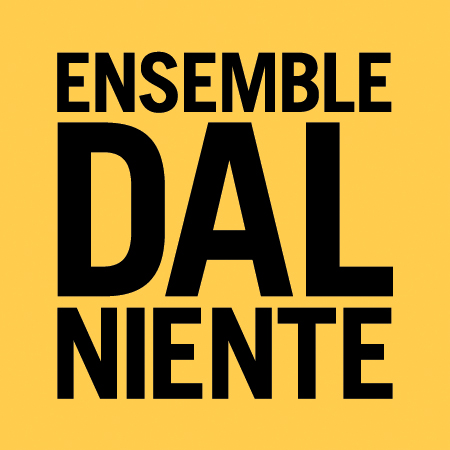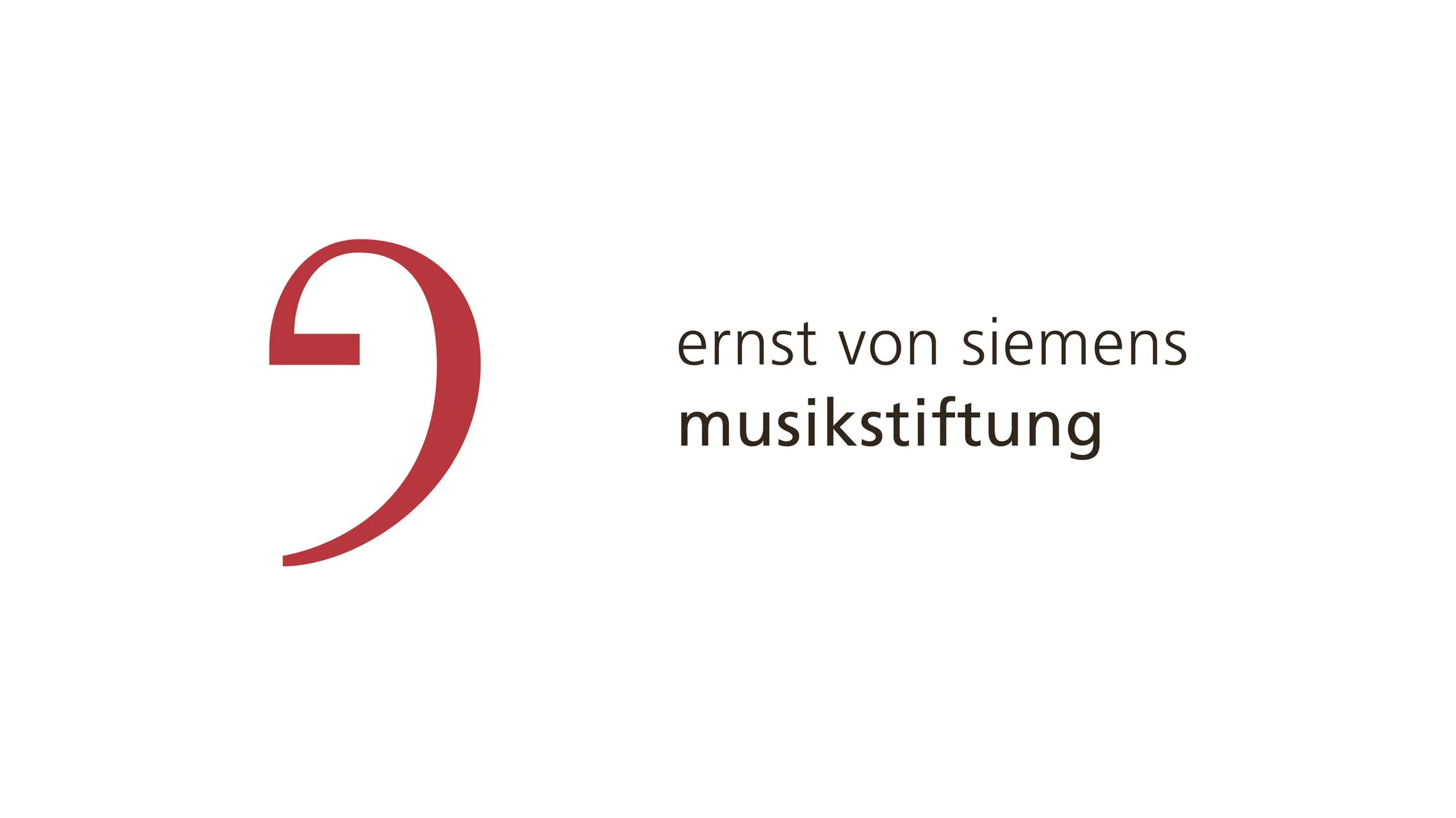Program
Michelle Lou, To care for the bodies of the dead (2023)
*Chicago Premiere
Intermission
Ted Moore, still motion (2017)
Simon Steen-Andersen, Black Box Music (2012)
*US Premiere
Performers, beyond this point
Adam Rosenblatt (Black Box Music, conductor soloist)
John Corkill (still motion, soloist)
Performers, Ensemble Dal Niente
Tom Snydacker, saxophone
Zach Good, clarinet
Ben Roidl-Ward, bassoon
Matt Oliphant, horn
Charles Roberts, trumpet
Riley Broach, trombone
Jonathan Hannau, piano
Kyle Flens, percussion
Ethan Cowburn, percussion (Black Box Music)
Rebecca McDaniel, percussion (Black Box Music)
Ben Melsky, harp
Jesse Langen, guitar
Ammie Brod, viola
Juan Horie, cello
Eddie Kass, bass
Michael Lewanski, conductor
Hunter Brown, tech
Program Info
to care for the bodies of the dead (2023) was written for and is dedicated to Ensemble Dal Niente.
I was at the New Museum in New York over the summer and watched the artist Tuan Andrew Nguyen's films installed on the walls there, in particular one called "Because No One Living Will Listen" about a Vietnamese woman whose Moroccan father defected from the colonialist French Army. She never had the chance to know him and so communicates with him through speculative letters. One line from such a letter read, (I'm paraphrasing) "...and who will care for the dead..." In a review in the Asian American Arts Alliance on this exhibit, Jacinda Tran writes that Nguyen's work "...highlights the continuation of lives, histories, and materialities beyond spatial and temporal punctuations to suggest, and imagine, their more capacious contexts and possibilities." His work deals with intergenerational trauma enacted by the violence of colonialism and through a series of films and installations of sculptures and archival objects, "...reveals the cyclical nature of time, the fluidity of memories, and the porosity of boundaries."
The title of this piece adds the word "bodies" which casts a layer of visceral immediacy. When we can, we perform rituals around the death of someone to honor the memory of the now vacated shell. We do it for ourselves as much or more than for the dead's benefit. But there is a kind of care that extends beyond the immediate body. How do we care for the memories of the dead? A kind of continuance can be constructed by those who remember, and maybe even more critically, self reflection through a kind of speculative memory.
—Michelle Lou
still motion (2017) was commissioned by and composed for percussionist Patti Cudd with support from MacPhail Center for Music and the McKnight Foundation.
still motion uses live audio and video sampling of the performing percussionist, the projection of which creates a counterpoint to the live performer. All of the sampling is done with an openFrameworks program coded in C++.
—Ted Moore
Black Box Music (2012) is scored for percussion solo, amplified box, 15 instruments and video. The starting point is the classical soloist-conductor, only in this case, the conducting and solo part are one and the same. The setting is a traditional theatre stage with curtains, props and light; only in this case, the stage is also an instrument. Black Box Music could be said to be a deconstruction of conducting and puppet theatre as well as an exploration and exploitation of the audio/visual relations inherent in conducting and staging. The “grand show” is in three movements, starting with ‘Ouverture’ and ‘Slow Middle Movement’ and then finishing off with a festive, pompous, 'Self-Imploding Finale’.
—Simon Steen-Andersen
About the composers
Michelle Lou is a composer, performer, and sound artist working mainly in the realm of electro-acoustic music. Her work has been presented at Wien Modern, Donaueschinger Musiktage, Darmstadt Ferienkurse, Bludenzer Tage zeitgemäßer Musik, Schloss Solitude, The Festival of New American Music, the MATA Festival in New York City, The 66th American Music Festival at the National Gallery in Washington D.C., The Rainy Days Festival in Luxembourg, Ultima Festival in Oslo, Chance and Circumstance in Brooklyn, and Kammer Klang in London, amongst others. She received degrees in double bass performance and composition from UC San Diego and Stanford University, with additional studies at the Conservatorio G. Nicolini in Piacenza, Italy and the University for Music and Performing Arts in Graz, Austria. She was a Radcliffe Fellow at Harvard University and an Elliott Carter Rome Prize Fellow at the American Academy in Rome. She has taught at the WasteLAnd Summer Composition Course, the Akademie für Neue Musik in Boswil, Switzerland, and as a Visiting Lecturer at Dartmouth College. Michelle is currently a Visiting Assistant Professor in Composition and Electronic Music at UC Santa Cruz.
Ted Moore (he / him) is a composer, improviser, and intermedia artist whose work fuses sonic, visual, physical, and acoustic elements, often incorporating technology to create immersive, multidimensional experiences.
After completing a PhD in Music Composition at the University of Chicago, Ted served as a postdoctoral Research Fellow in Creative Coding at the University of Huddersfield as part of the ERC-funded FluCoMa project, where he investigated the creative potential of machine learning algorithms and taught workshops on how artists can use machine learning in their creative music practice. Ted’s music has been presented by leading cultural institutions such as MassMoCA, South by Southwest, The Walker Art Center, and National Sawdust and presented by ensembles such as Talea Ensemble, International Contemporary Ensemble, the [Switch~ Ensemble], and the JACK Quartet. His sound art installations combine DIY electronics, embedded technologies, and spatial sound have been featured around the world including at the American Academy in Rome and New York University.
Computational thinking and digital tools enrich all aspects of Ted’s work, which has been described as “an impressive achievement both artistically and technically” (VitaMN). Ranging from concert stages to dirty basements, Ted is a frequent improviser on electronics and has appeared with dozens of instrumental collaborators across Europe and North America including on releases for Carrier Records, Mother Brain Records, Noise Pelican Records, and Avid Sound Records. Described as “frankly unsafe” by icareifyoulisten.com, performances on his custom, large-scale software instrument for live sound processing and synthesis, enables an improvisational voice rooted in free jazz, noise music, and musique concrète.
Ted currently lives near New Haven, Connecticut, but might also be found hiking in nearby West Rock State Park or on the side of a mountain in Summit County, Colorado.
Simon Steen-Andersen (born 1976 in Denmark) is a Berlin-based composer and stage director working with a multidisciplinary approach to musical performance and the concert situation, resulting in works situated between the categories of music, performance, theatre, choreography and film.
Simon Steen-Andersen received numerous prizes, latest the Carl Prize 2020, the SWR Orchestra Prize 2019, the Mauricio Kagel Music Prize and the Siemens Composer’s‘ Prize 2017, the Carl Prize 2015, the Nordic Council Music Prize 2014, the SWR Orchestra Prize 2014, the Carl Nielsen Honorary Award and the Kunstpreis from Berlin Academy of the Arts 2013, the 1st Prize of International Rostrum of Composers and the DAAD Berlin Artist Residency 2010 and the Kranichsteiner Music Award 2008.
Simon Steen-Andersen studied composition with Rasmussen, Spahlinger, Valverde and Sorensen in Aarhus, Freiburg, Buenos Aires and Copenhagen 1998-2006. He has been a member of the Berlin Academy of the Arts since 2016 and the Royal Swedish Academy of Music since 2018.
Since 2018 he is teaching composition and music theatre as professor at the University of the Arts Bern (HKB), Switzerland and as associate professor at the Royal Academy of Music in Aarhus, Denmark.
About Ensemble Dal Niente
Ensemble Dal Niente performs new and experimental chamber music with dedication, virtuosity, and an exploratory spirit. Flexible and adaptable, Dal Niente’s roster of 26 musicians presents an uncommonly broad range of contemporary music, guiding listeners towards music that transforms existing ideas and subverts convention. Audiences coming to Dal Niente shows can expect distinctive productions—from fully staged operas to multimedia spectacles to intimate solo performances—that are curated to pique curiosity and connect art, culture, and people.
Over the past two decades, Ensemble Dal Niente has performed concerts across Europe and the Americas, including appearances at The Metropolitan Museum of Art in NYC; The Foro Internacional de Música Nueva in Mexico City; Radialsystem Berlin, MusicArte Festival in Panama City; The Library of Congress and the Phillips Collection in Washington, D.C.; the Art Institute of Chicago and the Hyde Park Jazz Festival; Walt Disney Concert Hall in Los Angeles; The Americas Society; and the Darmstadt Summer Courses in Germany. Dal Niente is the recipient of the 2019 Fromm Music Foundation prize, and was the first-ever ensemble to win the Kranichstein prize for interpretation in 2012. The group has recordings available on the New World, New Amsterdam, New Focus, Navona, Parlour Tapes+, and Carrier labels; has held residencies at The University of Chicago, Harvard University, Stanford University, Brown University, Brandeis University, and Northwestern University, among others; and collaborated with a wide range of composers, from Enno Poppe to George Lewis to Hilda Paredes to Roscoe Mitchell.
The ensemble's name, Dal Niente ("from nothing" in Italian), is a tribute to Helmut Lachenmann's Dal niente (Interieur III), a work that upended traditional conceptions of instrumental technique; and also a reference to the group’s humble beginnings.
About beyond this point
beyond this point is an exploratory collaboration seeking to investigate resonances and intersections across several practices including theater, movement, media/film, non-traditional musical forms, sculpture, text, and installations both static and performative.
The collaboration aims to engage diverse audiences on multiple levels through its exploration of resonances between artistic mediums with a goal of developing a platform in which to create works that are intrinsically coalesced along these resonances from their point of inception.
Special Thanks
Jennie Oh Brown and Epiphany Center Staff
Gray Center for Arts and Inquiry at the University of Chicago
Neil Verplank - Box construction
Dan Nichols and Aphorism Studios
Third Coast Percussion
with the friendly support of:




